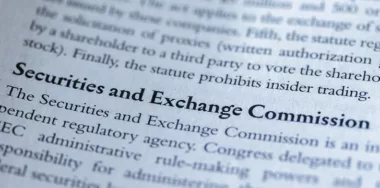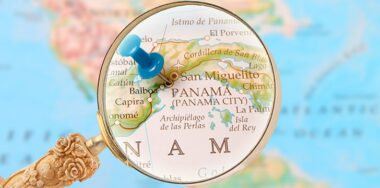Nevada regulators have pushed Prime Trust into receivership after the digital asset custodian was found to have only around 3% of its customers’ cash on hand.
On Tuesday, the Nevada Financial Institutions Division (NFID) announced that it had petitioned the Eighth Judicial District Court of Nevada to appoint a receivership of Prime Trust. The NFID wants a receiver to assume control over the company’s day-to-day operations and to “thoroughly examine all its finances to determine the best option to protect Prime’s clients, either by rehabilitating and returning the company to private management or by liquidating the company.”
Tuesday’s announcement followed last week’s NFID order for Prime Trust to halt its operations in Nevada after a probe revealed that the company had failed to “safeguard assets under its custody.” Prime Trust’s financial condition had “deteriorated to a critically deficient level,” and allowing it to continue operations would be both “unviable and unsafe.”
The petition calls for impounding all Prime Trust’s property, including all company documents detailing its assets and accounts. Prime Trust staff will be prevented from “disbursing, committing, transferring, substituting, or withdrawing any funds” from its accounts or “transacting any further business” on Prime’s behalf.
The parlous state of Prime Trust’s accounts can’t be understated. In fiat cash terms, Prime Trust owes its customers nearly $85.7 million but has only $2.9 million in cash on hand. Digital assets held on behalf of customers are in better shape, a mere $861,000 shy of the total $69.5 million owed.
Regardless, as the NFID makes plain, Prime Trust “would be unable to satisfy all of its withdrawals.” What’s more, the company’s “condition will only progressively worsen as customers continue to withdraw.”
One year ago, Prime Trust was sitting pretty, having just emerged from a Series B round with $107 million in new financing. But Prime Trust began to stagger following last November’s bankruptcy of Sam Bankman-Fried’s FTX/Alameda empire. That same month saw the still-unexplained dismissal of then-CEO Tom Pageler, followed by a significant staff cull this February.
Last week’s C&D order exposed “a negative $12,071,508 stockholders’ equity position,” while state rules prohibit retail trust firms from operating with stockholders’ equity of less than $1,000,000. All of which begs the question: what the hell happened here?
Honey, have you seen my keys?
According to the NFID petition, when Prime Trust launched in 2018, it used an in-house digital wallet to store customers’ digital assets. The following year, Prime Trust contracted U.S.-based custodian Fireblocks to store its customers’ assets, which were fully migrated from the original Prime Trust ‘legacy’ wallet to Fireblocks in 2020. The legacy wallet “continued to exist but was marked as inactive.”
Prime Trust underwent a management shakeup in 2020, with the incoming team duly informed by the exiting team that “all cryptocurrency assets were maintained and accessible in the Fireblocks platform.”
In January 2021, Prime Trust experienced unspecified “limitations associated with creating new wallets within the Fireblocks platform,” and thus Prime Trust “reintroduced specific legacy wallet forwarding addresses to customers.”
By December 2021, Prime Trust “discovered that it was unable to access the Legacy Wallets and the cryptocurrency therein.” (Again, the petition doesn’t cite specifics for this lack of access.) To handle customer withdrawals between December 2021 and March 2022, the company “purchased additional digital currency using customer money from its omnibus customer accounts.”
Prime Trust reportedly continued its efforts to access its legacy wallets but “has been unable to do so” at the time the NFID filed its petition.
A Fireblocks spokesperson told CoinDesk that Prime Trust’s legacy wallets “were not Fireblocks wallets.” The spokesperson added that Prime Trust’s new management “made a decision to deposit Prime Trust’s customer assets in old legacy wallets. Once management moved those assets to the legacy wallets, the customer assets were not recoverable.”
Prime Trust appears to have borrowed a page out of the FTX/Alameda playbook when it borrowed some customers’ cash to buy crypto to fulfill other customers’ withdrawal requests. There’s also Prime Trust’s cryptic announcement last November that it was “increasing our capital contribution to certain liquidity providers” who’d begun to “pull back due to the uncertainty resulting from” FTX’s implosion.
Prime Trust appeared to have found its white knight in the form of rival custodian BitGo, who three weeks ago signed a non-binding letter of intent to acquire Prime Trust’s parent company. But BitGo left the deal after the NFID issued its C&D order.
Around the same time, Prime Trust subsidiary Banq Inc, a crypto-friendly payment processor, filed for bankruptcy protection based on what it claims was the wholesale looting of its assets by its former management team. Said team includes Scott Purcell, who founded Prime Trust in 2016 and acted as its CEO until March 2021. Purcell stepped down as Banq’s CEO in December 2021 to launch Fortress NFT with some other former Banq execs.
Asked for comment on Prime Trust’s receivership, Purcell told Bloomberg that he and his Fortress pals had “handed the reins of a very profitable company” to the new management. Following last week’s Nevada C&D order, Purcell issued a statement saying what Prime Trust’s “subsequent management team did with the company is incredibly sad to see, heart-wrenching … how they could screw that up is, to me, beyond imagination.”
Clearly, someone knows more about this story than they’ve so far been willing to reveal publicly. Watch this space.
True(USD) detective
Prime Trust’s woes have shone a brighter light on the sketchy activity surrounding one of its clients, TrueUSD, the Justin Sun-linked entity that controls the TUSD stablecoin. Prime Trust served as one of TUSD’s few on-/off-ramps for U.S.-dollar transactions until earlier this month when TrueUSD announced that new TUSD mints via Prime Trust were “paused for further notification.”
TrueUSD has since claimed that it only had $26,434 of the alleged $3.15 billion in TUSD’s total market cap stored with Prime Trust and that everything True is just tickety-boo. But doubts were soon cast on these claims after TUSD customers received emails informing them that no minting or redeeming would be possible “while Prime Trust’s operations are suspended.”
Digital sleuths have discovered what appears to be multiple failed attempts by TUSD customers to redeem their tokens for dollars. In many cases, tokens that are ‘burned’ are almost immediately reminted and returned to the customers trying to redeem them for dollars.
TUSD’s market cap soared from $750 million at the end of 2022 to nearly $3.15 billion earlier this month, largely due to its suddenly preferential status on the Binance exchange, which now offers zero-fee TUSD-based trades. But early Wednesday (28), TUSD’s market cap abruptly dropped by nearly $100 million, of which $74 million was dumped by a single wallet of unknown provenance. So somebody is being allowed to cash in their Sun-Bucks for actual money.
Many of TrueUSD’s less-connected-more-frustrated customers ultimately took the only route left to them by depositing their TUSD to—surprise!—Binance, where nearly all of BTC trading (wash trading) currently takes place. And nearly 60% of these BTC trades are being done with TUSD.
Then there’s the ongoing issues with attestations to the reserves allegedly backing TUSD 1:1 with the U.S. dollar. Despite the $26,434 allegedly stuck on Prime Trust representing a mere 0.0000084% of TUSD’s total reserves, TrueUSD’s official Twitter account felt the need to delete a tweet from earlier this month that sought to assure users that “TUSD is 100% reserved.”
There’s also the fact that Techteryx, the shadowy company behind TrueUSD, opened an account with a Swiss financial institution in April that TUSD’s own auditors say lacks the standard consumer protection guardrails that prevent Techteryx from treating these reserves as its own money.
On Tuesday, TrueUSD’s normally chatty Twitter feed issued its first tweet in a week, saying nothing about the redemption issues, instead bragging about its 30-day trading volume having “surpassed a significant milestone.” The tweet cited stats supplied by CoinMarketCap, which Binance owns. (The family that scams together…)
While TrueUSD was bragging, TUSD was dramatically slipping its peg to the dollar on the Binance.US exchange, dipping as low as 80¢ on Wednesday before crawling back up to 90¢. Binance.US has been struggling with liquidity issues as the U.S. Securities and Exchange Commission’s civil suit against Binance and founder Changpeng ‘CZ’ Zhao has left customers either unable to access their digital assets or unwilling to trust the exchange to safeguard them.
Binance.US transferred millions of dollars of customers’ cash to Prime Trust this spring, following the failure of several ‘crypto-friendly’ U.S. banks and the subsequent unwillingness of other banks to touch Binance with a 10-foot pole. The current whereabouts of these transferred funds remain something of a mystery.
Reuters previously exposed CZ’s habit of transferring nearly all Binance.US funds not immediately required for keeping the U.S. exchange afloat to international entities under his control. It’s almost as if CZ understands that something really, really bad is lurking just around the corner.
Watch: Rise of digital currencies in banking
New to blockchain? Check out CoinGeek’s Blockchain for Beginners section, the ultimate resource guide to learn more about blockchain technology.










